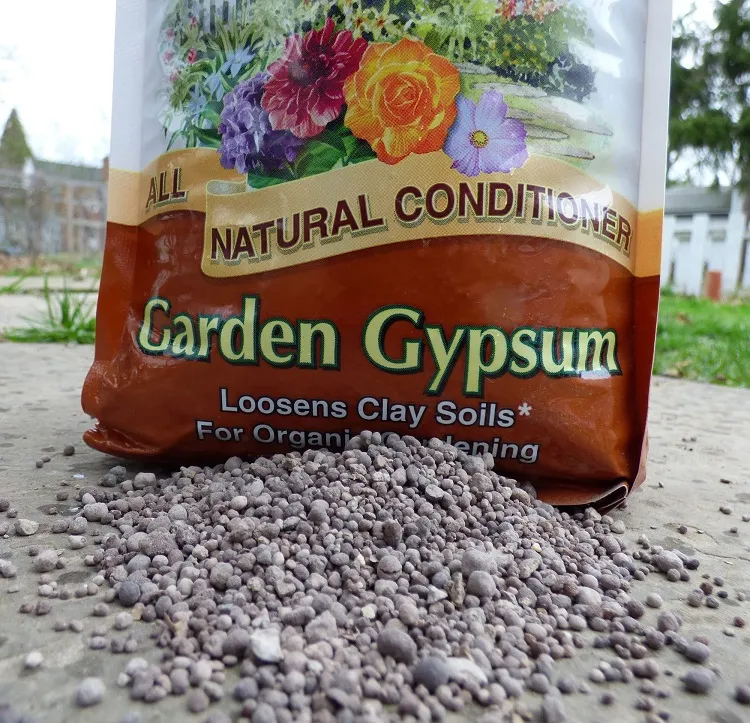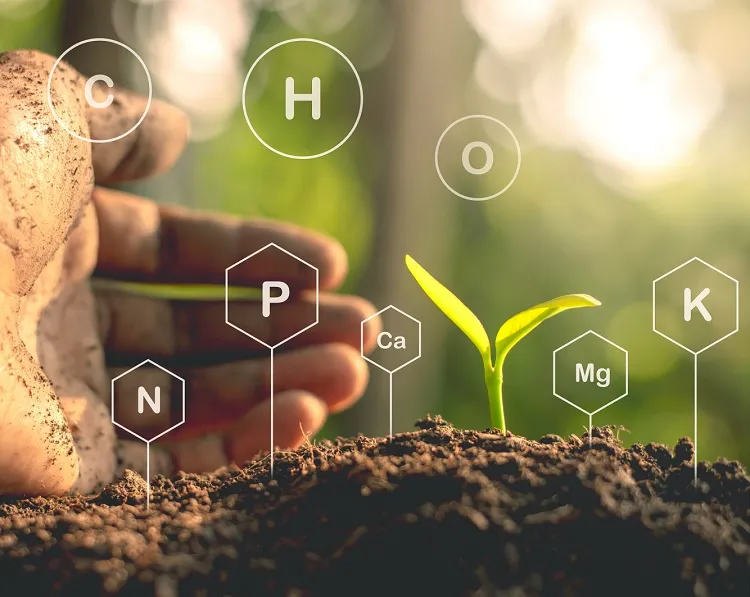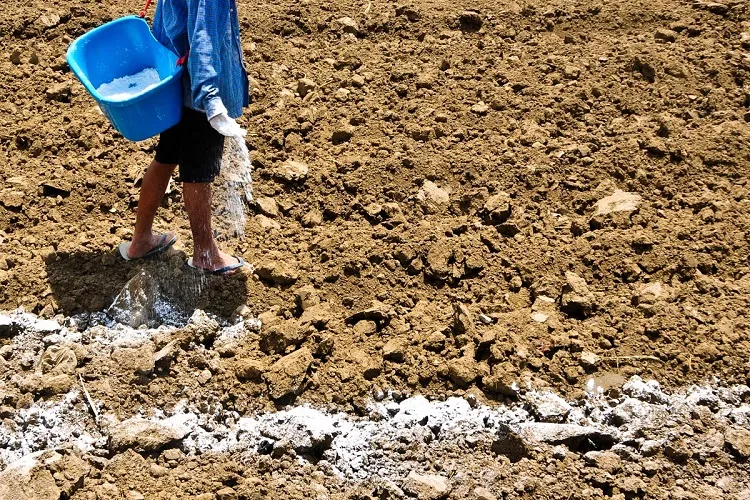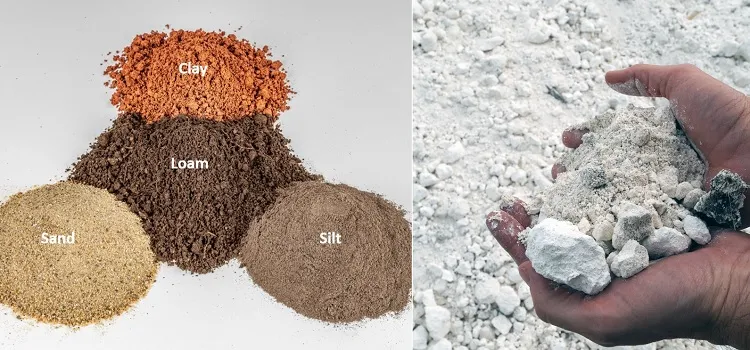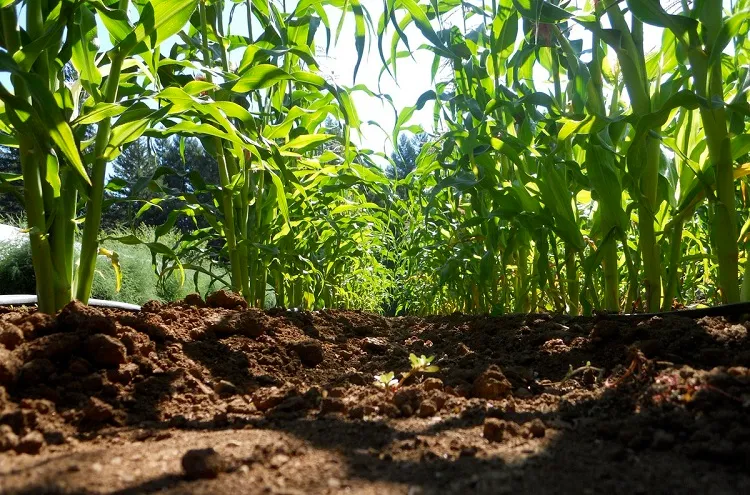If you’re looking for a way to enhance your garden’s fertility and the beauty of the flowers and decorative greenery, adding gypsum might be just the solution you need. It is a natural mineral specially prepared in the form of fine powder to be mixed with the soil. Its greatest advantage is the ability to improve the soil structure, its drainage, and the nutrient availability for the plants. As a result, your fruits and flowers accept more easily water and all the needed elements for their growth, and flourish. Read this article to know what are the benefits of gypsum for soil, as well as, in what cases and when to apply it in your garden.
What is Gypsum for Soil Amendment?
Gypsum is a naturally occurring mineral, which is composed of calcium sulfate dihydrate. It is commonly found in sedimentary rocks and can be extracted from mines or quarries. When this substance is ground into a fine powder, it can be used as an amendment to improve soil structure and fertility. Gypsum works by loosening compacted soil and increasing the amount of air and water that can penetrate in it. This allows roots to grow more easily and access the nutrients with ease. Additionally, gypsum can help neutralize the pH of acidic soils by increasing their calcium content.
How Do I Know If My Soil Needs Gypsum?
There are a few signs that your garden may benefit from the addition of gypsum for soil improvement. If you notice that it is hard and compacted, with poor drainage and limited root growth, this natural chemical can help to loosen and aerate it. Additionally, if it is acidic, with a pH below 6.0, the addition of gypsum will neutralize excess acidity and improve nutrient availability. One, quite convenient way to determine if there is a need of adding this substance, is to perform an investigation with a soil test kit. This will give you an accurate reading of the pH, nutrient levels, and other important factors.
When to Use Gypsum in Gardening?
Gypsum for soil amendment can be used at any time of year, but it is most effective when applied in the fall or early spring. Proceeding in this way, gives it the time to work its way into the soil and begin improving its structure and fertility before you start planting your garden. It’s important to note that this natural substance should not be used as a quick fix for problems in your garden. If your soil is severely compacted or acidic, it may take several applications of this natural mineral over a period of years to see significant improvement. It is important to be noted also that, this substance should not be used as a substitute for proper management practices for the garden, such as crop rotation and soil cover cropping.
What Kind of Soil is Treated with Gypsum?
Gypsum for soil amendment is appliable on a wide variety of soils, including loamy and sandy, but it is particularly effective on clay type ones. As, they can become hard and compacted over time, making it difficult for plants to grow. This useful mineral can help break up the soil and improve drainage, allowing roots to grow more easily. It can also be used to neutralize acidic soils, which are common in areas with high rainfall. Because they can be problematic, as they tend to limit nutrient availability and make it difficult for plants to absorb essential minerals.
What are the Benefits of Gypsum for the Soil?
The benefits of using gypsum for soil amendment are numerous. Here are the most important ones:
- Improved soil structure: Gypsum can help loosen compact formations, making it easier for roots to grow and absorb nutrients.
- Better drainage: By increasing the amount of air and water, penetrating the soil, the addition of this natural substance can lead to better drainage and prevention against waterlogging.
- Increased nutrient availability: It can help increase the availability of essential nutrients.
- Neutralized acidity: Gypsum is able to neutralize excess acidity of some soils by improving their pH levels, which can increase the penetration of nutrients and the plants’ growth.
- Improved crop yields: By improving soil structure, drainage, and nutrient availability, this natural chemical can help increase crop yields and contribute to the overall health of your garden.
- Environmentally friendly: Gypsum amendment is a natural mineral, which is safe to use in your garden and does not have any harmful effects on the environment.
If you’re looking to have the full potential of your garden and get better yields from your plants, consider applying gypsum as a natural amendment. Remember that it’s essential to use it as part of a larger soil management plan, which includes proper crop rotation, cover cropping, and other best practices for maintaining healthy soil.
Read also: Which Plants Do Not Like Wood Ash? You Might Be Suprised to Find Out..

